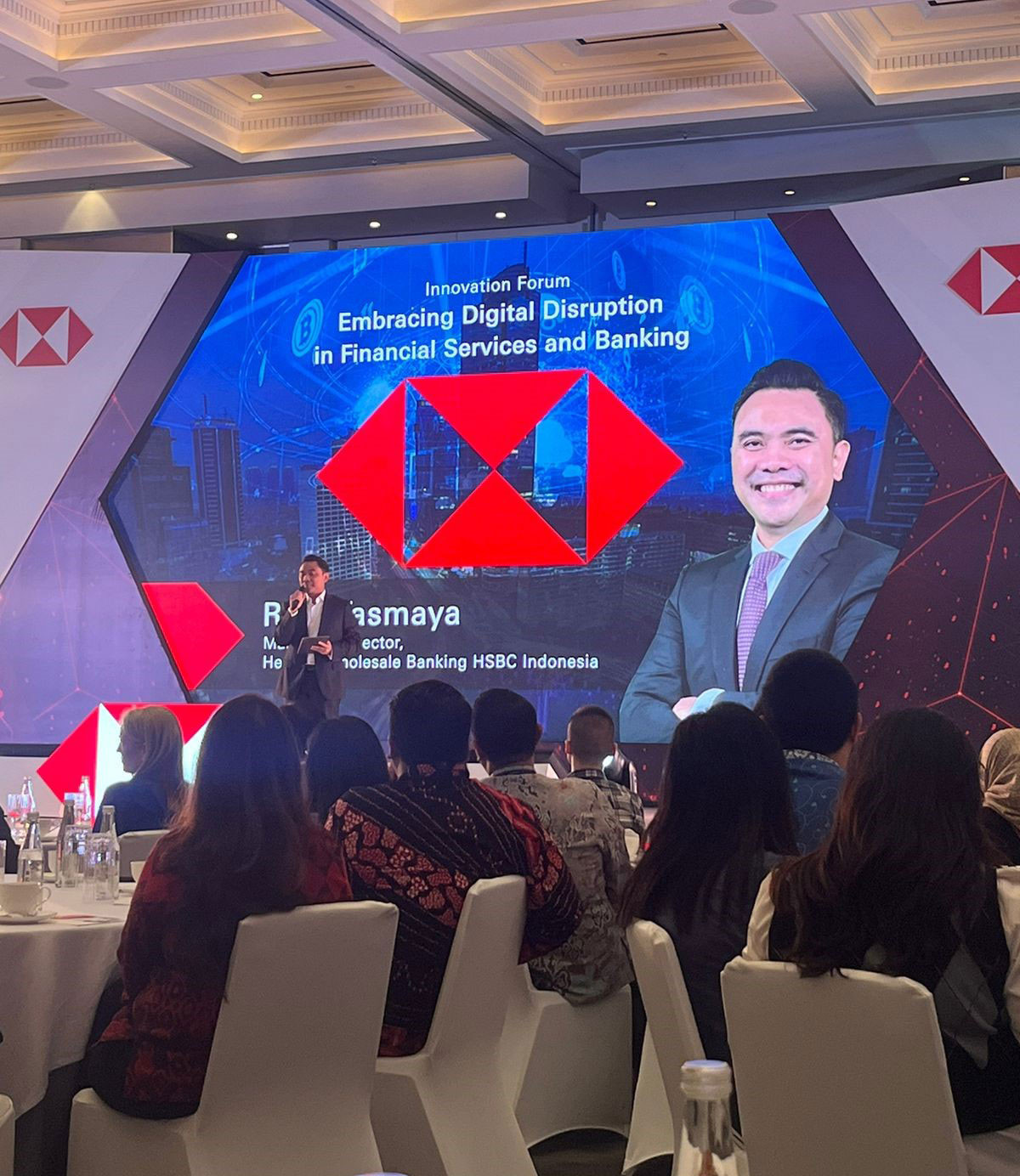HSBC seminar highlights challenges faced by banking industry amid digital disruption
Change Size

A
recent seminar by HSBC shed light on the unique challenges in the banking industry’s current business models amid the wave of digital disruption and how the sector can better position itself.
Titled “Embracing Digital Disruption in Financial Services Banking”, the seminar was held on Nov. 11 at the Langham Hotel in Jakarta, attended by a panel that included Guillaume de Gantes, senior partner at McKinsey & Company; Camilla Bullock, CEO of Emerging Payment Association (EPA) Asia; Alison Jap, chief international partnership at DOKU; Riko Tasmaya, head of WSB HSBC Indonesia and Vincent Lau, director and regional head of emerging payments at HSBC.
Indonesia ranks high in terms of global internet users, fostering more unicorns than other Southeast Asian nations with the exception of Singapore. The Indonesia Payment System Blueprint 2025 aims to digitize payments, including the introduction of the BI-Fast system that has been quickly embraced by consumers across the country.
Indonesia’s e-commerce sector contributed 4 percent to its GDP in 2022, trailing China's 11 percent - with the archipelago anticipated to reach 6 percent by 2030. In line with the trend, HSBC prioritizes large-scale digitization, striving to provide top-tier digital banking solutions for customers' present and future businesses.
Riko told The Jakarta Post that one fascinating aspect of Indonesia is the substantial space available for growth.
“For instance, considering internet users in Indonesia, it's one of the largest, almost 200 million. Yet about a quarter still lack internet access, and about a third don't have a bank account. Financial inclusion heavily relies on this digital technology," he said.
The push for faster, more efficient payments is not solely about cost reduction for businesses; it is about enhancing consumer convenience and security. Real-time payment implementation at a national level significantly boosts overall economic activity. Plans are under way to extend these benefits across South and Southeast Asia by creating a vast regional real-time payment network.
However, building this network is complex. Connecting different nations' systems involves navigating varied regulations beyond software installation, demanding both technological expertise and diplomatic finesse.
Yet, the envisioned advantages for businesses and consumers suggest this network's emergence is inevitable. Projections indicate interconnection among real-time payment networks of at least five ASEAN countries and India within the next five years.
Progress toward integration is ongoing. Efficient systems like Thailand’s PromptPay, Malaysia’s DuitNow, Indonesia’s BI-Fast, Singapore’s PayNow and India’s UPI have gained traction. Connections between these networks have started, enabling cross-currency payments and collaborations like PayNow and UPI, signifying the birth of a pan-regional network.
The rising volumes in real-time payments, driven by government initiatives and digital wallet adoption, showcase the system's potential. India’s UPI hit US$180 billion in transactions, up 45 percent year-on-year (YoY). Similarly, Singapore’s PayNow soared to nearly $287 billion in 2022, reflecting a 28 percent YoY increase.
The widespread adoption of real-time payments brings benefits such as reduced fees, faster settlements, and enhanced innovation, benefiting businesses and consumers alike. To expand this success across South and Southeast Asia, connections between payment networks need to evolve beyond traveler payments.
A more integrated cross-border payment network presents opportunities for businesses to grow globally and grants consumers access to more options, especially in Southeast Asia's burgeoning e-commerce landscape. However, linking diverse payment systems involves technical complexities and regulatory challenges that demand collaboration among governments, banks, and international institutions.
Efforts like SWIFT's CBPR+ migration and ISO 20022 standards aim to address messaging format issues. Yet, success hinges on pioneering government initiatives and financial institutions' support. The evident economic gains, including increased cross-border flows and overall development, make the integration of real-time payment networks a compelling prospect across the region.









